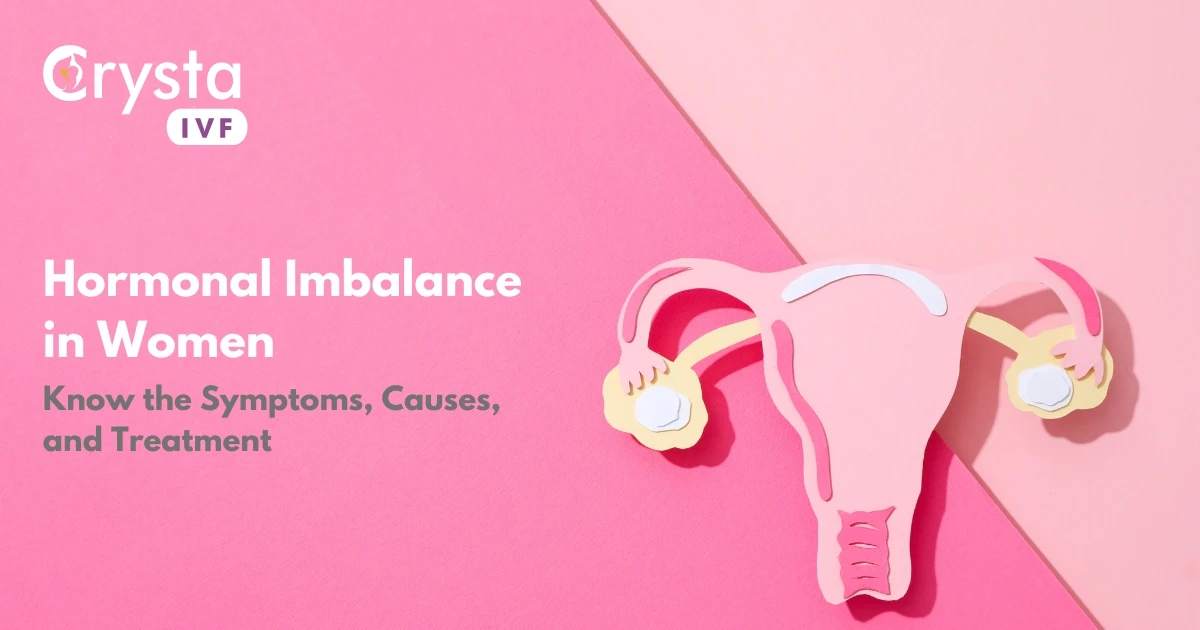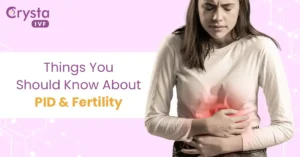Hormones are known as vital messengers in your body and are essential to maintain. Mostly preferred as a powerful controller of the body, hormones are produced in the endocrine glands and travel around your bloodstream to inform tissues and organs about what to do.
In short, having a hormonal balance is essential for the body to maintain, as even a slight change in your hormones can affect your body and lead to serious health complications. In simple words, you can think of your hormones as the ingredients of your favourite dish; if anything is added in excess or is missing, the final result will not be what you have desired.
However, you should be shocked to know that some hormone levels fluctuate through your life journey as a result of ageing and that you cannot do anything about them, but when the complications associated with your hormones start at an early stage of your life, they devastatingly affect your body and collapse the whole working system.
So read on to understand this closely, as we are back once again with this blog to solve all your questions related to hormonal balance. To make you understand more about hormonal imbalances in women and how they are going to affect their overall health.
Hormones: What are they and how do they lead to hormonal imbalance?
Hormones are those chemicals that coordinate various functions in your body and carry messages through your blood to other vital organs such as the skin, muscles, and other tissues. These are the alert signs that direct your body on what to do and when to do it. Hormones are an essential part of your life and make up your endocrine system along with your tissues. Being the important ones, they take care of your metabolism, growth and development, sexual function, reproduction, mood, sleep-wake cycle, and your constant internal balance.
Hormone imbalances in women usually occur when they have too much or too little of one or more hormones and it results in dozens of medical conditions. While some imbalances require treatment and regular checkups with your doctor while others just go away on their own. Some of the most common hormone-related conditions are listed below.
Health conditions caused by hormonal imbalance
The most common symptoms of hormonal imbalances in women are:
Female Infertility- Hormonal imbalances are one of the main causes of female infertility, and the conditions of hormonal imbalances in women that lead to infertility are PCOS and anovulation.
Irregular menstruation (periods): The smooth working of a menstrual cycle involves several hormones. So imbalances in any hormone can cause irregular periods. The specific hormone-related conditions that result in irregular periods include polycystic ovarian syndrome (PCOS) and amenorrhea.
Acne: Acne is mainly caused by clogged pores. And many factors contribute to the development of acne, including hormone fluctuations, specifically during puberty (which is a significant factor when your hormones change naturally). The oil glands, including those in the skin on your face, get stimulated when your hormones become active once again during puberty.
Diabetes: The most common hormone-related condition is diabetes. In this chronic condition, your pancreas fails to make enough insulin hormone, or even if it makes your pancreas not use it properly. Which can also lead to female infertility and requires treatment.
Hormonal Acne: Hormonal acne usually develops when hormonal imbalances in women increase the amount of your skin produces. This is common during the time of pregnancy and menopause.
Thyroid disease: The two main types of diseases are hypothyroidism and hyperthyroidism, each of them causes multiple issues and leads to female infertility.
Obesity: Many hormones work to signal whenever your body needs food and how your body uses energy. An imbalance of specific hormones can result in obesity and contribute to female infertility.
These are the common health conditions caused by hormonal imbalances in women, but before we go further let’s notice the early symptoms.
Symptoms of hormonal imbalance in women
- Fatigue
- Constipation
- Diarrhoea
- Depression, or anxiety
- Skin tags
- Higher cholesterol levels
- Numbness and tingling in your hands
- Thin, warm and moist skin
- Slow or rapid heartbeat
- Unexpected weight gain or loss
- Infertility
- Low sex drive
- Pain in the abdomen or the back during menstruation
These symptoms are enough to take action for your health and go for a hormonal imbalance test so that your healthcare provider can effectively plan for your hormonal imbalance treatment. But it is also essential to know what possible causes can lead to hormonal imbalance in women as prevention is always better than cure.
Causes
Along with other complications, hormonal imbalance can also occur when the endocrine glands do not function properly. As these endocrine glands are proficient in producing, storing and releasing hormones into the blood. You would be astonished to know that there are several endocrine glands located throughout your body that control different organs such as:
- Adrenal glands
- Pineal gland
- Pituitary gland
- Hypothalamus gland
- Pancreatic islets
- Gonads (testis and ovaries)
- Thyroid and parathyroid glands
Other causes of hormonal imbalances in women may include-
- Poor diet and nutrition
- Chronic Stress
- Being Overweight
- Misuse of anabolic steroid medications
- Hormonal replacement or birth control medications
- Exposure to toxins, pollutants, and endocrine-disrupting chemicals, including but not limited to pesticides.
These causes not only affect your body function but also, in several cases, lead to female infertility. So knowing how to cure hormonal imbalances in females is necessary, either if you are planning for a baby or want to get rid of the numerous complications you have faced in your body. Action is required for your health, and the first step you can take is to acknowledge how hormonal imbalances in people are diagnosed and look for treatment methods.
How are hormonal imbalances in women diagnosed?
The truth is, there is no single test available to aid doctors in diagnosing hormonal imbalances in women. So they usually start with performing a physical exam and will ask questions related to your health. Depending on your symptoms, your doctor may suggest one or more diagnostic tests, such as
- Blood Test
- Pelvic Exam
- Ultrasound
- Additional tests like a biopsy, MRI, X-ray, or thyroid scan
Regardless of what test you go through, it is more important to discuss your test results with your doctor and let them know what symptoms you are concerned about or whether you are planning to have a baby or not to plan your treatment according to your health condition.
Treatment options for a hormonal imbalance
Treatment for hormonal imbalances in women will usually depend on what’s causing them, and some of the commonly available treatment options are described below.
Estrogen therapy- If you are experiencing hot flashes or other symptoms of menopause, your healthcare provider may recommend a low dose of estrogen to balance your hormones.
Vaginal Estrogen- Women experiencing vaginal dryness linked with specific changes in estrogen levels can apply creams containing estrogen directly to vaginal tissues to reduce the symptoms. Also, they can use estrogen tablets to relieve vaginal dryness.
Hormone or birth control- For those women who are not planning to get pregnant, they can go for medications containing forms of estrogen and progesterone to regulate their irregular menstrual cycles and their symptoms. And birth control is available as a pill, ring, patch, shot, or intrauterine device (IUD).
Assistive Reproductive Technology: The most important treatment you can go for if you are looking to plan for a baby while dealing with hormonal complications is IVF. It’s not only the most vital form of ART but also widely accepted. In this treatment, fertilization occurs outside the human body in a laboratory dish.
After carefully studying all these treatments, are you looking forward to talking to your doctor and planning a treatment for yourself? If yes, then do it the right way and connect with a fertility expert right now before it gets too late.
Get in touch with a fertility specialist!
Your hormones are crucial to maintaining balance, as they are responsible for your body’s major processes. When your hormones become unbalanced, they can show extreme symptoms and cause a variety of health complications. In this condition, it is required to seek treatment. And if you are hoping to have a baby while fighting against all odds, talk to an IVF specialist at the best IVF centre in Pune, Crysta IVF.
Here, the fertility experts will follow a personalized approach and work with advanced technology and ART methods to solve all your fertility issues, so this time, get serious about your health issues and get in touch with a fertility specialist right now.




